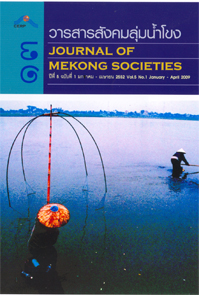Ho Chi Minh Sites in Thailand: Their Significance and Potential Problems for Thai-Vietnamese Relations
Main Article Content
Abstract
The relationship between Vietnam and Thailand has a long and multifaceted history. It has involved both state-to-state and people-to-people interactions. Modern history has witnessed the rise and fall, the warmth and the chill of bilateral relations between the two countries. Interestingly, the Ho Chi Minh factor seems to have put its stamp on every period of the development of this relationship. During the Cold War, Ho Chi Minh was seen by the Thai elite as one of the “worst types” of communists whose policy posed a threat to Thai national security as well as to regional peace and stability. It was not until after the end of the Cold War that the Thai elite changed their perception of Ho to suit the new context. Prominent examples of the change are the commemorative house of Ho Chi Minh and the Thai-Vietnamese Friendship Village in Nakhon Phanom, as well as the site for historical studies of Ho in Udon Thani. This paper argues that the Ho Chi Minh sites have played and will continue to play a significant role in boosting Thai-Vietnamese understanding and cooperation. However, these sites may also cause some problems for bilateral relations should the image of Ho Chi Minh be “utilized” improperly.

